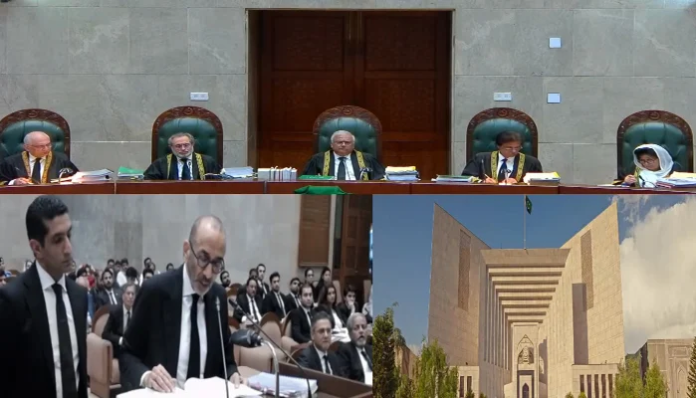ISLAMABAD, MAY 26 (DNA): The Supreme Court’s constitutional bench has observed that the Sunni Ittehad Council (SIC) is not entitled to reserved seats, questioning how independents can join a political party that is not part of Parliament.
During a live-streamed hearing on the reserved seats case, Justice Ameenuddin Khan led an 11-member constitutional bench that heard arguments on whether the SIC could claim reserved seats after inclusion of independent candidates.
The court remarked that while independents can join a party represented in Parliament, it is constitutionally unsound for them to join one that did not participate in the elections.
“How can independent candidates join a party not present in Parliament?” questioned Justice Musarrat Hilali. “Did Sunni Ittehad Council even contest the elections?”
The bench repeatedly questioned how SIC could lay claim to reserved seats, given that it did not contest the 2024 general elections and had no electoral presence in Parliament.
Representing the de-notified women MNAs, senior lawyer Makhdoom Ali Khan argued that the SIC’s appeal had been unanimously dismissed and the elected members on reserved seats were de-notified without receiving any formal notice.
Justice Hilali reminded the court that the Election Commission of Pakistan’s notification had earlier been declared null and void. “This case concerns proportional representation. Reserved seats are allocated based on party performance in elections,” she stated.
Khan contended that the Supreme Court’s previous ruling had made no reference to Article 225 of the Constitution, which bars challenges to election matters outside the election tribunals.
However, the bench questioned the applicability of Article 225 in a case that concerns proportional representation rather than a direct election.
Justice Jamal Khan Mandokhail, later during the hearing, said unequivocally that the Sunni Ittehad Council is not eligible for reserved seats.
The hearing was adjourned until tomorrow (Tuesday), with the court directing the SIC’s counsel to present arguments in the next session.

















